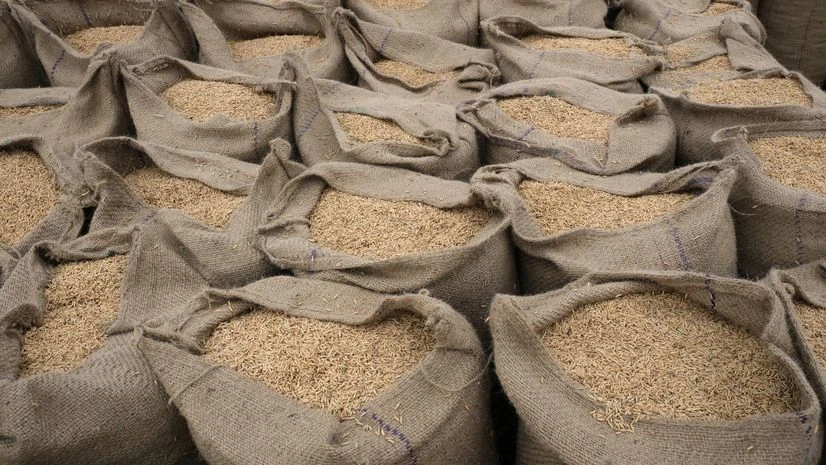Indian farmers have planted 23.7 million hectares with summer-sown rice so far, according to the farm ministry's latest data, up 1.71% year-on-year, as crucial monsoon rains revived in July and helped farmers accelerate sowing.
Higher rice planting in India, the world's second biggest producer of the grain, will ease concerns about the lower output of the staple.
Earlier this month, India ordered a halt to its largest rice export category - a move that will roughly halve shipments by the world's largest exporter of the grain.
Farmers typically start planting rice, corn, cotton, soybeans, sugarcane and peanuts, among other crops, from June 1, when monsoon rains are expected to begin drenching India. Sowing usually lasts until July and early August.
Summer rains are crucial as nearly half of India's farmland lacks irrigation.
India received 10% below normal rains in June, but in some states, the rainfall deficit was as much as 60% below average.
More From This Section
The India Meteorological Department defines average, or normal, rainfall as ranging between 96% and 104% of a 50-year average of 87 cm (35 inches) for the four-month season.
India's weather office has forecast an average amount of rain in July despite the likely emergence of the El Nino weather pattern.
July rainfall is crucial as it accounts for most of the precipitation for the four-month-long monsoon season.
This year, the delayed arrival of monsoon rains and lower rainfall in some southern, eastern and central states held back the planting of summer crops even as the monsoon covered the entire country nearly a week in advance.
Some regions in India, including breadbasket states such as Punjab and Haryana, have received torrential rains in July, triggering floods. Still, dry weather conditions prevail in some parts of the country.
Farmers planted 17.1 million hectares with oilseeds, including soybeans, 2.3% more than a year earlier. Corn was planted on 6.9 million hectares, almost unchanged from last year. The cotton area was marginally lower at 11.8 million hectares.
(Reporting by Mayank Bhardwaj; Editing by Lincoln Feast.)
(Only the headline and picture of this report may have been reworked by the Business Standard staff; the rest of the content is auto-generated from a syndicated feed.)

)
